MIDK 2025
| Szilárd András - associate professor, Department of Mathematics and Computer Science of the Hungarian Line, Babeș-Bolyai University, Cluj-Napoca, Romania |
|---|
|
The last two decades have seen a paradigm shift in the way mathematics is taught in many European countries. A key element of this is the widespread use of Inquiry Based Learning. Several European projects have focused on the development of related teaching materials and training, and in some countries this approach has been integrated into the education system. However, experience and experimentation have brought to the fore some fundamental problems: on the one hand, the transferability of IBL materials is much more difficult than in the traditional case, and on the other hand, the creation of really good teaching materials requires much more expertise not only in mathematics but also in pedagogy and didactics. One common problem is that students, after experiencing something, may be less interested in technical details, in proofs. Another problem may be that they quickly move from factual knowledge to procedural knowledge and thus miss out on conceptual understanding, the development of strategies. In designing/implementing curiosity-driven activities, we as teachers have to constantly redefine our own role according to the different learning objectives. In addition to the general theoretical issues, I will give some examples of how a traditional teaching material can be adapted to be the subject of an inquiry based activity without missing out on conceptual learning and metacognitive development. |
| Janka Medová - associate professor, Department of Mathematics, Faculty of Natural Sciences and Informatics, Constantine the Philosopher University in Nitra, Slovakia |
|---|
|
Problem-solving is central to mathematical education, fostering essential skills for success. Combinatorics provides unique problem-solving experiences, encouraging students to explore multiple solution paths, justify reasoning, and compare strategies, fostering metacognitive growth. Combinatorial thinking combines logical reasoning with systematic planning, helping students analyze all possible configurations of elements. It supports transitions from intuitive listing to abstract reasoning using sum and product rules, permutations, arrangements, and combinations. As a gateway topic, combinatorics boosts struggling students' confidence in mathematics. Integrating programming enhances combinatorial and computational thinking. Programming automates processes, algorithmizes problem-solving, and visualizes complex structures. It enables students to explore broader problem spaces by analyzing, modifying, or creating algorithms, deepening their understanding of systematic listing and combinatorial logic. This lecture explores how programming enriches combinatorics education through combinatorial and computational thinking frameworks, focusing on automation and algorithmization. Practical examples will illustrate how programming verifies systematic listings, models structures, and solves problems algorithmically. Engaging with code—whether analyzing, modifying, or creating—enhances mathematical learning and fosters computational literacy. |
| Róbert Pap-Szigeti, College Professor, Department of Information Technology, John von Neumann University, Kecskemét, Hungary |
|---|
|
The basic components of our competences are the elements of the knowledge system (knowledge, skills, etc.). The science of education has many theoretical and methodological results on their development. The content regulations of education generally define the knowledge elements to be acquired at each age – sometimes also the criteria for these elements. |
| Gordana Stankov, College Professor, Subotica Tech - College of Aplied Sciences, Subotica, Serbia and Eötvös József College, Baja, Hungary |
|---|
|
A novel approach to teaching and learning calculus, developed using Computer-Supported Collaborative Learning (CSCL), will be presented, highlighting its continuous improvement from 2012 to 2025. This method was initiated in response to the challenges faced by first-year students, particularly in understanding fundamental calculus concepts and applying derivatives to analyze functions and draw their graphs. In 2011, educators at the University of Novi Sad and Subotica Tech College of Applied Sciences (Djurdjica Takaci and Gordana Stankov), Serbia, used collaborative learning, and in 2012 they decided to begin integrating the GeoGebra application into collaborative learning practices. A comparison between two groups of students, one from 2011 (the control group) and another from 2012 (the experimental group), focusing on their learning methods, performance, and responses in questionnaires and interviews, demonstrated that GeoGebra facilitated the development of an effective learning environment for this topic. The GeoGebra application allows students to verify each step in the process of solving a task. Findings from our research indicate that GeoGebra supports students with insufficient prior knowledge, helping them enhance their understanding and skills necessary for solving such tasks. This teaching approach and the resulting learning outcomes were detailed in a paper published in 2015 (Dj. Takači, G. Stankov, I. Milanovic, Efficiency of learning environment using GeoGebra when calculus contents are learned in collaborative groups, Computers and Education, Vol. 82, 2015, 421-431). In the years leading up to the COVID-19 pandemic, students used their phones instead of computers and independently began incorporating other software tools into their collaborative learning activities, further evolving the methodology of this approach to collaborative learning. Building on the positive outcomes, in 2024 we extended this approach to teaching students how to calculate the area of geometric figures bounded by function graphs using definite integrals. This extension of our CSCL method has shown promising results, which will also be discussed in our presentation. |






